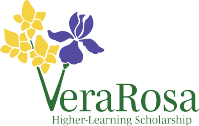The nursing field has many career possibilities for those who are passionate about caring for patients. Some of these careers may be lesser known to many people, who are only familiar with nurses within the setting of a hospital or doctor’s office. The Bureau of Labor Statistics states that over 50% of nurses work in a hospital setting. In contrast, other nurses provide patient care in other locations like outpatient care facilities, nursing homes, physician offices, and rehabilitation programs. Nursing can attract a wide range of diverse students who can offer their talents in a variety of ways, whether caring for children in a hospital or supporting individuals who are going through drug rehabilitation.
Endless Possibilities in Patient Care
Caring for people when they’re most vulnerable can be a highly rewarding career that gives many nurses a deep sense of purpose. Some nurses may even work in other roles that provide education or research, which can pave the way for other students to pursue and excel in this exciting career. Nursing is often considered one of the most stable professions when you consider there will always be a need for patient care. Nearly every state has a high demand for the specialized skills and expertise that nurses can offer. Nursing professions can vary in educational requirements and average salary, with some students choosing certifications and others obtaining licenses and higher degrees. According to the Bureau of Labor and Statistics, nurse anesthetists receive the highest median pay of $195,610, after completing a rigorous doctoral program.
Students who are passionate about caring for people and making a difference may want to consider a career in nursing. If so, students can begin their journey by integrating physiology, microbiology, health, biology, chemistry, and even math into their educational framework. Understanding these subjects can ensure that a student is well-prepared for the challenges of a nursing career.
Building a Connection Between Math and Nursing
It may seem unusual to think of any relationship between math and nursing, but these two subjects can share many similarities. For instance, consider a nurse who is dispensing medicine. This might require various skills such as increasing or decreasing the dosage or even calculating the rate at which an IV is being administered to the patient. All of these skills are reliant on understanding basic math concepts. Statistical math might be used to determine any patterns or changes in a patient’s condition, while conversions might be used for changing data for easier measurements.
Beyond these specific applications, an education in math gives students critical thinking and problem-solving skills, which are essential to a nursing career. Nurses often work in fast-paced environments and need to make decisions quickly to ensure the safety and health of their patients. Math skills enable nurses to think logically under pressure and help make statistical analyses, even if the data is limited.
Math careers aren’t limited to education or highly technical industries like computer science or information technology. A solid foundation in math can lead students to a rewarding career in nursing that will likely continue to have a good job outlook for many years to come.
VeraRosa’s Commitment to Students in STEM
Students who pursue science, technology, engineering, or math (STEM) have a bright future with many exciting job possibilities. VeraRosa Higher-Learning Scholarship believes that all students, regardless of their socioeconomic backgrounds, deserve an opportunity to gain valuable math skills that can set them up for success. Beyond nursing, students who study STEM can choose from interesting careers in cybersecurity, graphic design, animal behavior, and more. Our supporters make it possible for students to obtain the resources they need for a successful education. If you’d like to learn more and support our mission, please contact us today.

